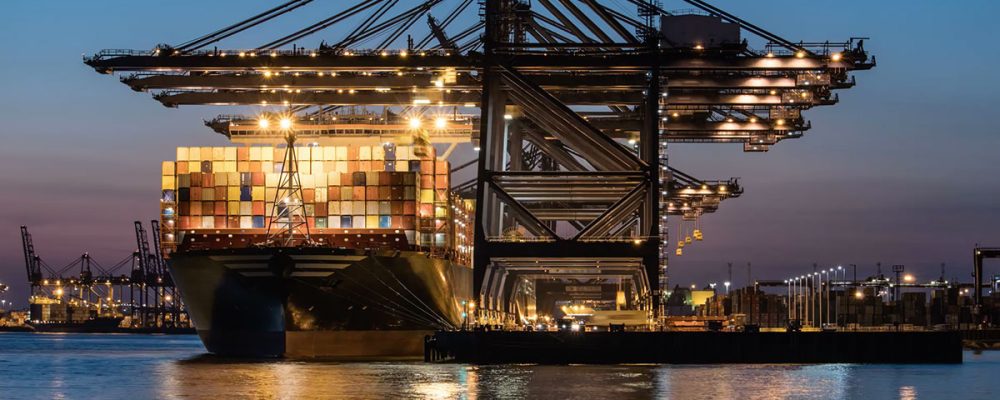Did you know that 90% of everything you buy was brought to you by ship? The world of shipping and international trade is as exciting as it is diverse, thus providing a great industry to work in. Some of the biggest ships in the world can carry up to 18,000 shipping containers, full of items that end up on the shelves of your supermarket or delivered to you straight from abroad. However, for such a major, worldwide industry that is crucial to the economy, not that many people consider shipping a viable career option.
When you are trying to choose the perfect career path for you, there are many different factors to bear in mind and when it comes to jobs in shipping. It is important to assess the different kinds of jobs available in this sector by contacting shipping recruitment agencies; if you are looking for a fun and exhilarating job opportunity that is going to take you to new places, put this at the top of your wish list. If security and regular hours are your priority, likewise.
Why Choose A Job In The Shipping Industry?
To begin with, why consider jobs in shipping at all? Maybe you have previous sailing experience, or you’re completely new to commercial shipping but believe you have something to offer the sector. The industry has such a diverse range of roles that there’s something out there to suit all skillsets.
As 2020 progresses, the opportunities within the shipping industry are evolving too. The industry was once viewed as lagging behind modern technology but there are now roles available such as ballast water management (ensuring the safety of water taken in as ballast in port), digital, and social media marketing.
There are also environmental roles; shipping is the least environmentally damaging form of commercial transport. Thanks to new initiatives, there has been a substantial reduction in marine pollution over the last 15 years.
If sailing the seas is not for you, there are many shore-based roles available which might be the perfect fit.
Here are some of the most diverse shipping jobs available on the market right now.
Shipbroker
Competitive shipbrokers are the intermediaries between
- Shipowners and the charterers who hire their ships
and
- The buyers and sellers of ships – Sale & Purchase (S&P) Brokers.
Most employers look for graduates to perform this role but some of the best brokers and charterers have no official qualifications at all. Key qualities for this role are: excellent networking and sales skills and the ability to build trust. ICS qualifications are highly regarded as on-the-job training and as a route into broking and chartering.
When it comes to wages, professionals can earn around £50,000 a year. They generally earn a commission of 1.25% of the ‘freight’ paid per tonne to carry the cargo or the daily ‘hire’ paid to hire the ship for a certain period. This can be anything from weeks to several years.
Operations
An operations team in Shipping is all about support, coordination, communication, administration and customer service. Generally speaking, it is the team who ensures things run smoothly. Vital for this role are organisation skills, the ability to remain calm under pressure and persistence. Many junior recruits these days are graduates, often with shipping degrees. Junior deck officers also stand a good chance of attaining a role in this sector.
Wages for entry level and junior positions start at around £20,000 a year.
Superintendent
Traditionally superintendents were the chief engineers on ships who have changed roles and have come ashore. They are primarily responsible for planned (and unplanned) maintenance and their costs, dry docking and major repairs, vessels surveys and audits, budgets, supervising vessels’ crews, environmental compliance, overseeing vetting inspection results, investigating breakdowns, accidents and damage, and a number of other variables.
Seafaring experience as a senior engineering officer is a desirable asset, as is a degree in engineering or naval architecture or even shipyard/engine manufacture experience. In the past superintendents needed to have been a chief engineer to gain the respect of the chief engineers on ships they manage. However, seagoing experience is no longer a necessary requirement.
Wages for this role are typically between £40,000 and £65,000 a year.
Claims Handler / Manager
To each organisation a claim means something different. In protection and indemnity, whose role it is to insure liability claims, handlers form the majority as their role is to defend the claims of owners.
For owners, a claim would suggest that they have damaged something. Volume claims tend to be found in the liner industry, while the higher value, but lower in number claims are in the cargo segment. A dependable personality, discretion and good communications skill are important for this role. Managers earn an average of nearly £60,000 a year.
Dangerous Goods Specialist
There are many specialist roles when it comes to jobs shipping and handling, and a dangerous goods specialist is one of the most crucial. Dangerous goods are materials or items with hazardous properties which, if not properly handled, present a potential hazard to human health and safety, infrastructure and/or their means of transport. Dangerous goods handling includes validating, labelling, handling, and making a decision about parcels and packages. Many commonplace goods may be considered hazardous for shipping including items containing lithium batteries (phones, computers and many household electronics), aerosols, perfumes, paints, chemicals alongside more obvious things like explosives or acids. The list is endless. Dangerous goods need to be handled with care and expertise, and this is so important for the industry moving forward.
This is one of the most important jobs in shipping, and one that requires a lot of experience. When you transport dangerous goods, there are rules on how to pack and label them, the specific paperwork required and the training your staff must have. You may also need to have a Dangerous Goods Safety Adviser (DGSA), or access to a DGSA. Dangerous goods must be packaged and labelled appropriately. Anyone packing dangerous goods for air transport must be specially trained.
Rail Operations Coordinator
The operations side of the industry concerns the way in which a business is supported and coordinated. This is all to do with communications, admin, customer service, and the way in which you maintain contact with rail clients.
This is a role that holds particular importance. This is something that plays a massive part in helping organise and run a shipping business, and working as an operations coordinator puts you front and centre when it comes to being successful.
Import Entry Clerk
The role of an import entry clerk is one that plays a major part in the industry. Import-export clerks manage data for international shipments whilst providing support for many steps of the transportation process. They work with customs agents, warehouse staff, shipping companies, and clients. Clerks assist with shipping, receiving, and record keeping for international transactions.
As an import entry clerk, you will be responsible for documenting and logging deliveries, shipping receipts, and order forms. There are so many elements involved when it comes to running a successful shipping business, and this is one of the key job roles that play a massive part.
Shipping Law
In shipping law there are solicitors and barristers. Generally, solicitors represent the clients and barristers are appointed via a solicitor to represent those clients in court.
The traditional route to this role is a law degree (LLB) followed by a one year Legal Practice Course (LPC) followed by professional examinations at the end. If you don’t have a law degree, you can do a one year conversion course after a different degree called the Common Professional Examinations (CPE).
Quite a few master mariners work as ‘marine’ or ‘admiralty managers’ in law firms. Here, they practise wet shipping law. Many have no legal qualifications and although they are not lawyers as such, they do a full legal job, learning as they go. Qualified lawyers typically earn around £90,000 a year.
A&S Recruitment
These are just some of the more unique and diverse job roles in the shipping industry. A&S are one of the leading shipping recruitment agencies in the UK. We specialise in assisting candidates to secure positions in the transport, warehousing, commercial and shipping sectors. We connect applicants to jobs in Felixstowe, Ipswich and surrounding areas.
With superior industry experience and a reputation for unwavering excellence, we’re confident we can find the right people for the right job, and vice versa. You can view all our current roles on our website and speak with our experienced consultants who will help you find the right role for you.





